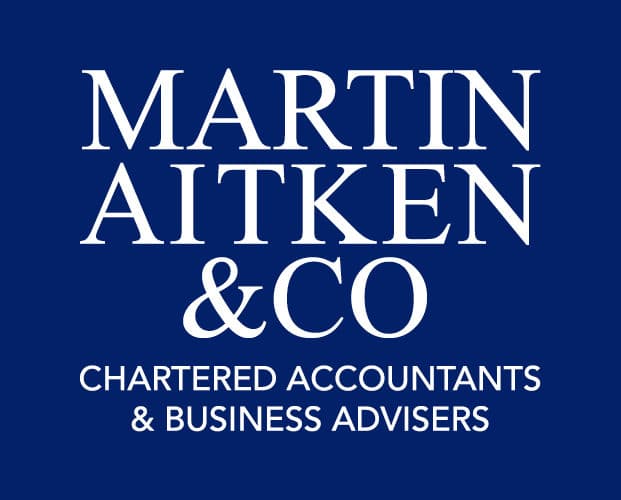Before you get out your party hats and streamers to celebrate the end of this tax year on April 5 and to herald the arrival of the next on April 6 (or maybe this is just in my house!), there are a few things worth considering in order to minimise your corporate and personal tax bills and to avoid making unnecessary overpayments.
TAX YEAR END PLANNING: 5 TIPS
(1) Bringing expenditure into this financial year, or deferring to the next, can have a significant impact on your tax position and financial results. If you are considering a significant new purchase, it is worth a discussion with your accountant to see when is best financially and from a tax perspective to make the entry in the ledgers.
(2) Maximise and use all allowances, credits and exemptions you are entitled to. For instance, capital allowances can represent a valuable tax deduction for your pharmacy. They can be claimed on a wide variety of capital assets including plant, machinery, equipment, fixtures & fittings and vehicles.
(3) If you are thinking about selling a business asset and a gain is likely to accrue – before you do, make sure you tax advantage the sale. For instance, tax due on an asset sale can be delayed by reinvesting the proceeds in another qualifying asset.
(4) Any dividends you currently take in excess of the £2,000 dividend allowance will attract an income tax liability. Any dividends above that threshold but still in the basic rate tax band will be charged at 7.5%. Those in the higher rate band will be charged at 32.5% and those in the additional rate band at 38.1%. If you haven’t considered changing the way in which you balance your income and dividend payments in this tax year, make it a priority for the next.
(5) From 1 April 2019, all UK pharmacy businesses that are VAT registered with turnover above the £85,000 VAT threshold will be required to maintain a digital record of their VAT transactions and submit VAT returns to HMRC using MTD compatible software. If you haven’t already done so, you should contact your existing accounting software supplier to find out if they will be MTD approved before the deadline. If you are using basic spreadsheets at the moment, you should get in touch with your accountant to discuss a MTD compliant alternative. We have a few getting ready for MTD webinar videos on our website that also include demos of Xero, Sage 50 Cloud and Clearbooks Micro. If you are looking for a digital solution then they are worth a watch.
NEW TAX YEAR: 5 THINGS YOU NEED TO KNOW
(1) The personal allowance will increase to £12,500, however the 3% increase to the higher rate threshold announced by the Chancellor in the Budget statement will not be implemented in Scotland. The higher rate threshold (41%) in Scotland will be £43,430 and in the rest of the UK it will be £50,000.
(2) The tax-free amount for inheritance tax (IHT) will remain at £325,000 but the residents’ nil-rate band will rise to £150,000. For a married couple, this will give a tax-free band of up to £950,000. The £1m IHT free allowance heralded by George Osborne in his 2015 Budget will arrive in the 2020-21 tax year.
(3) The pensions’ Lifetime allowance will be increased by £25,000 to £1.055 million, however in reality this will have very little impact. What we are seeing though is a number of people actively considering more diversified retirement portfolios as they look to mitigate the effects of the recent reduction in the Annual allowance such as investments in Venture Capital Trusts (VCT) – an indirect investment in a small company which enables the taxpayer investor to benefit from 30% income tax relief on investments of up to £200,000, as well Enterprise Investment Schemes (EIS) and Seed EIS schemes which can offer up to 30% and 50% income tax relief respectively. Conditions do apply with VCT and EIS investments but they are worth a thought.
(4) Auto-enrolment contributions will increase to 3% employer and 5% for employees. Be sure to factor this in to your pharmacy expenditure projections for the year ahead.
(5) If you are thinking about buying a pharmacy, take note that you are likely to pay more tax. The upper rate of non-residential LBTT in Scotland is increasing from 4.5% to 5% and the threshold is being reduced from £350,000 to £250,000.
AND FINALLY… BREXIT
Whether there is a “no deal”, a brief delay in the UK’s departure and a “deal” or a longer period of transition, we are advising all of our SME business clients to research all scenarios and to plan for the worst and hope for the best.
To aid this process, we have produced a Brexit planning checklist which is available to download from our website: www.maco.co.uk/pharmacy. html. I have also been assisting clients with ‘what if’ scenario planning, and the associated financial projections that reveal the reds and the blacks that may unexpectedly appear in the sales, stock and purchase ledgers as we have worked through some of the potential impacts. It’s a worthwhile exercise which I would encourage you to consider.
Send me an email if you would appreciate a discussion about this, or if you are looking to get on the front foot with your taxes, I would be delighted to hear from you.
MARK TENBY
DIRECTOR,
MARTIN AITKEN & CO
T: 01412720000


